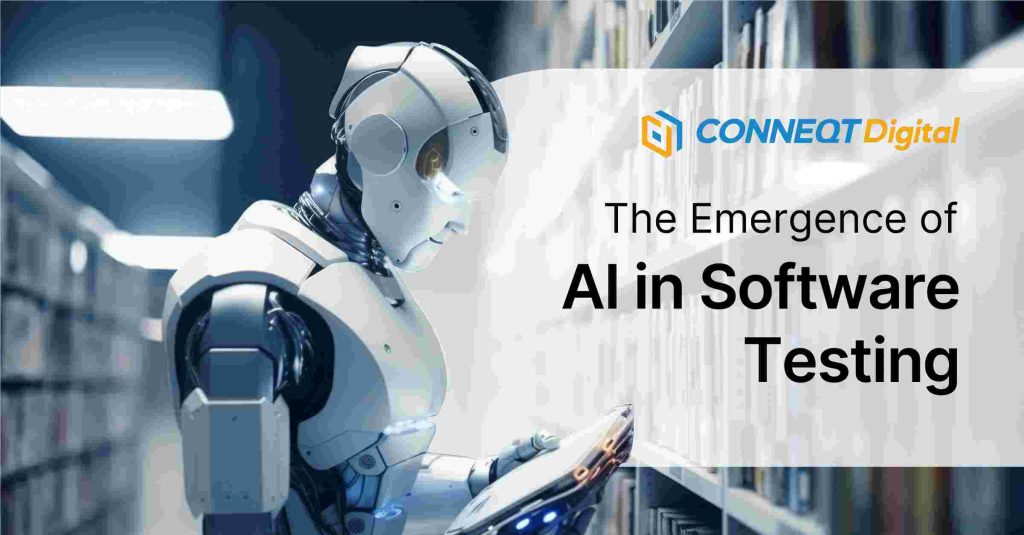Introduction
Artificial Intelligence never ceases to amaze us, continually pushing the boundaries of what’s possible. With its growing adoption in every sector, it’s high time we delve into how this technology reshapes the data management landscape for businesses. AI-driven data management is the new imperative for data-centric organizations, from data collection to storage and analysis.
The significance of proficient data management in facilitating business expansion cannot be overstated. As data transforms into Big Data, it introduces unparalleled intricacy into readability and integration. Businesses are compelled to construct an enabling ecosystem to harness the wealth of information generated. In this quest for data quality, accessibility, and security, Artificial Intelligence stands out as the most significant contender among the other emerging technologies.
Let’s understand here what AI-based data management is and the effectiveness of AI in data management.
AI data management and benefits of AI in data management
The role of AI in data management involves the application of machine learning algorithms and various intelligent methods to efficiently ingest, identify, and structure vast datasets. Through AI, enterprises can discover subtle patterns and derive actionable insights that might otherwise remain hidden.
The outcome is significant – enhanced operational efficiency and
flawless decision-making.
The rewards of leveraging AI in data management are primarily for boosting efficiency, resulting in time savings and error mitigation through the automation of tasks like:
- Data capture
- Deduplication
- Anomaly detection
- Data validation
Also, AI’s proficiency in data management is further strengthened by its automation capabilities, making it a significant asset in data governance. The efficiency includes its role in minimizing data breaches and bolstering data security and its remarkable capacity to train models to comply with privacy data policies and data protection protocols.
How AI is changing the data management game
Efficient and high-performing data management systems are essential for businesses today. Effective data management includes labor-intensive tasks like data cleansing, extraction, integration, cataloging, labeling, and systematic organization to derive actionable insights. Thus, integrating AI into data management can significantly enhance performance outcomes.
Here are some ways in which AI is changing the data management game:
Realistic data fabric –Data Fabric is a distributed data management platform designed to link data points to various data management tools and services. It functions as a cohesive layer, facilitating effortless data access and processing. AI is pivotal in consolidating all data sources and applications into a unified platform.
Here are some advantages you can expect to gain:
- Extensive storage capacity for varied data types and formats
- Effortless integration
- Streamlined access to data from multiple sources
- Advanced risk mitigation features
- Comprehensive insights with a 360-degree view of organizational data
AI-driven data cleansing –Data Cleansing is critical in business operations, as poor data quality can take a heavy toll. It can lead to misguided decisions and substantial financial losses. According to IBM’s findings, companies lose 3.1 trillion dollars annually due to data quality issues in the U.S. market. Thus, data scientists rely on AI and its subset, machine learning, to automate and expedite the data cleansing process.
Smart data catalogs for enterprises –An Enterprise Data Catalog is a data and metadata management solution facilitating data inventory and organization. Integrating AI and machine learning algorithms propels EDC to new heights, enabling datasets to be automatically populated and updated without human intervention. This automation streamlines data entry tasks, reducing manual efforts and overall cost savings.
How AI influences the data management landscape
Artificial Intelligence stands at the forefront of transformative technologies, ushering in a new era for industries and fundamentally altering the business landscape. Harnessing the power of AI, businesses can achieve task automation, extract invaluable insights, elevate decision-making processes, and uncover fresh avenues for growth. Following are some ways in which AI is redefining business models and operations, empowering organizations to maintain their competitiveness in today’s dynamic digital environment:
- Enhanced Data Analytics
- Intelligent Automation
- Personalized Customer Experiences
- Improved Supply Chain Management
- Enhanced Cybersecurity
- Intelligent Decision-Making
Apart from this, AI also facilitates the emergence of entirely unconventional business models and avenues for generating revenue. One prominent example is the upsurge of AI-powered platforms that unsettled conventional industries by forging inventive connections between buyers and sellers. These platforms rely on AI algorithms to harmonize supply and demand, curate personalized suggestions, and streamline transactions.
Moreover, businesses are delving into AI-driven subscription models, pay-per-use services, and outcome-dependent pricing structures. AI-driven breakthroughs fundamentally transform industry terrains, opening new horizons for startups and well-established enterprises.
AI and business today
AI can be considered as an efficient assistant instead of thought as a substitute for human intelligence and creativity. Its proficiency is rapidly processing and analyzing vast datasets, surpassing the human brain’s capabilities. AI can be employed to assist in mapping out potential outcomes for each action and simplifying the decision-making process.
These attributes make AI incredibly valuable across many industries, whether helping visitors and personnel navigate within a corporate campus or tackling intricate tasks like predictive maintenance for wind turbines. “
Artificial intelligence has a wider latitude of decision-making ability as opposed to traditional software,” says Amir Husain, founder and CEO of machine-learning company SparkCognition.
The future of AI
What is the future of AI? How will it be used?
It is difficult to predict how technology will evolve. However, most industry experts feel that AI will continue to excel at handling routine tasks with a ‘commonsense’ element. It implies that robots will increasingly integrate into our daily lives. Russell Glenister, CEO and founder of Curation Zone stated, “AI is ushering in the previously deemed impossible, such as driverless cars. The realization of driverless cars hinges on factors like access to training data and high-speed GPUs, which play pivotal roles as key enablers.”
Some industry experts also believe that AI could revolutionize even a simple activity like dining and make it a personalized experience by playing music per the guests’ interests. It can also transform the two-dimensional display of an online game, an interaction with a webpage, or reading an e-book. Shortly, we will likely witness individuals designing experiences tailored to them, whether within interconnected buildings or collaborative boardroom settings.
Here’s an interesting take on how Low-code data analytics platforms and the
future of data analytics.
To Summarize
Regardless of the challenges or opportunities, the future is here, and Artificial Intelligence is an inevitable part of it. As this technology progresses, we can expect the rise of new startups, a myriad of business applications, innovative consumer uses, shifts in employment dynamics, and the creation of entirely new job opportunities. Along with the Internet of Things, Artificial Intelligence holds the potential to substantially transform the economy, even though its precise impact remains uncertain.
If you want to transform your business and make it future-ready,
Conneqt with us for AI-empowered, seamless, and cloud-native data management.



